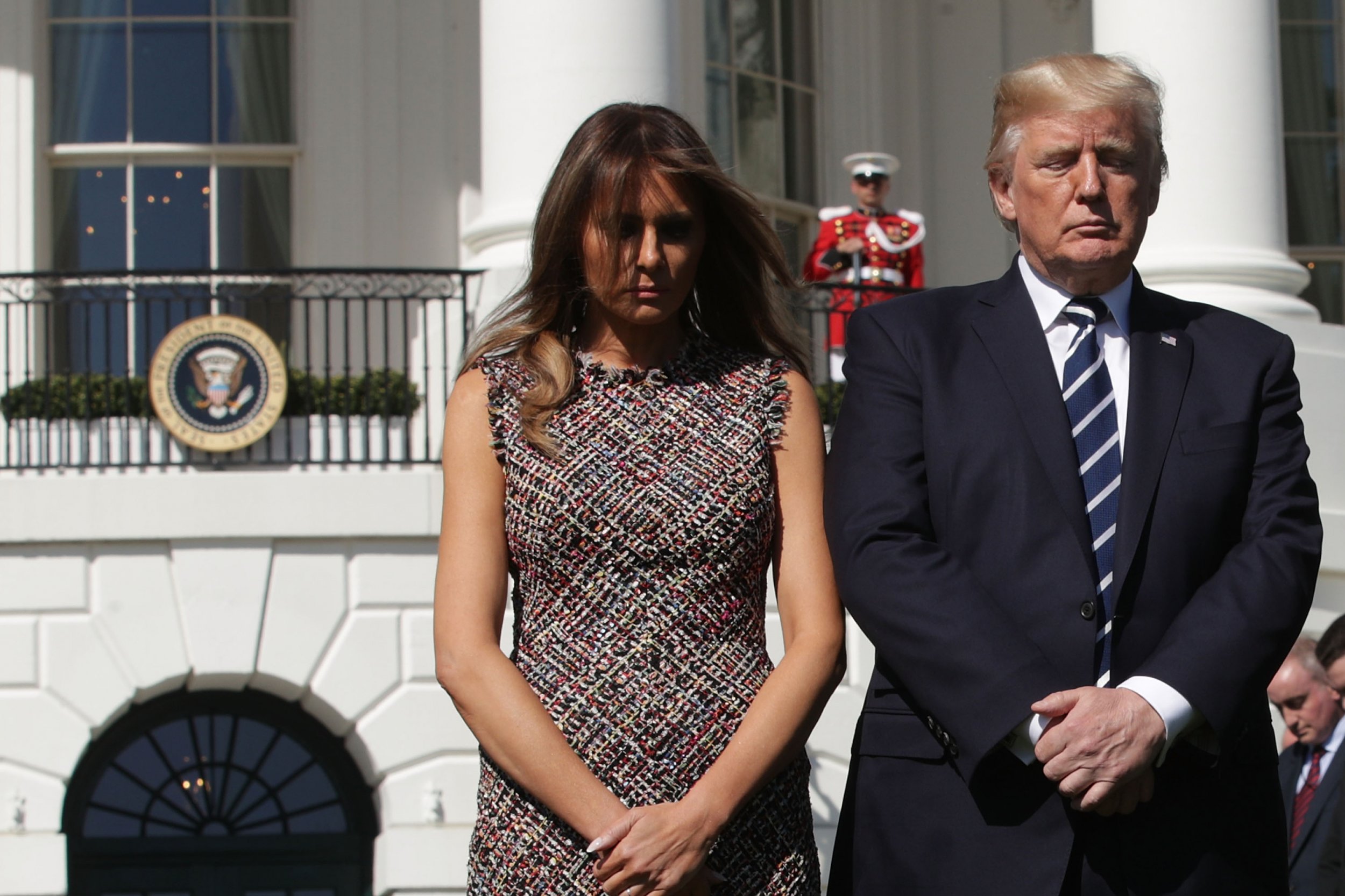
On Tuesday morning, President Trump commented that the person who killed 59 people in Sunday's shooting in Las Vegas was likely "a sick, demented man with a lot of problems."
The implication of comments like this, that people with mental disorders are responsible for mass shootings, has become a "meme" in the wake of such events, Columbia University psychiatrist Paul Appelbaum tells Newsweek. And as mass shootings in the U.S. continue, so does the inclusion of mental illness in discussions of gun violence among public figures and in the media.
"To jump to the assumption that" a shooter "is 'sick' in some way is simply to continue the stigmatization of people with mental disorders who commit only a small portion of acts of violence in this country," he says.
Appelbaum co-authored a review that found that extremely few violent acts are attributable to serious mental illness—just 3 to 5 percent. Reactions to violence that accuse the perpetrator of mental illness, he says, have two drivers. The first comes from a "perfectly natural assumption" that "only a brain that doesn't work right could commit a behavior that seems so foreign to us."
But the second reason has less to do with individuals and more about an attempt by the National Rifle Association to deflect attention, says Appelbaum. In the wake of mass shootings in the U.S., perhaps most memorably at a Newtown, Connecticut, school in 2012, the NRA has said that mass shootings are a result of allowing people with psychiatric diagnoses access to firearms. Most colorfully, an NRA spokesperson called for a national "database of these lunatics."
Rather than a legitimate proposition made out of concern for human life, Appelbaum sees this as an attempt "to deflect public attention to the issue of mental illness and away from effective regulation of access to guns." (The NRA's past comments become hard to square when considering Trump's decision to roll back an Obama-era guidance that made it more difficult for people with mental disorders to purchase a firearm, a move the NRA applauded.)
"To pretend that that is the solution to America's violence problem is fraudulent and only an effort to divert us from doing something more effective," Appelbaum says.
Beth McGinty, a professor at the Center for Gun Policy and Research at Johns Hopkins University, says the popular perception is fueled by cases in which a serious psychotic disorder—as in the 2011 shooting in Tucson, Arizona, of U.S. Representative Gabrielle Giffords—played a role. She adds that research very clearly does not support the option of banning people with psychiatric diagnoses from owning firearms. "The large majority of people with mental illness diagnoses are never violent, and most interpersonal violence in the U.S. is not caused by mental illness," she says.
And, of course, none of these questions exist in a sociological vacuum. Parallel to the pushback against the perceived reluctance to call Sunday's incident a terrorist act and referring to its perpetrator as a terrorist, there is the question of the role of race in these discussions about mental illness.
"There has been speculation that mental illness is more likely to be called upon as a cause of mass shootings when the person is white versus another race or ethnicity, but no research to date has systematically studied this question," says McGinty.
Whether mental illness is used as a way to explain the crimes of white shooters is its own question. But both McGinty and Applebaum are clear on one point: Focusing on mental illness in the wake of mass shootings is a red herring. To search for or assume the presence of an aberrance in the brains of those who kill further stigmatizes a mostly nonviolent group of people. And it detracts from the work of addressing violence at its root.
Uncommon Knowledge
Newsweek is committed to challenging conventional wisdom and finding connections in the search for common ground.
Newsweek is committed to challenging conventional wisdom and finding connections in the search for common ground.
About the writer
Joseph Frankel is a science and health writer at Newsweek. He has previously worked for The Atlantic and WNYC.
To read how Newsweek uses AI as a newsroom tool, Click here.








